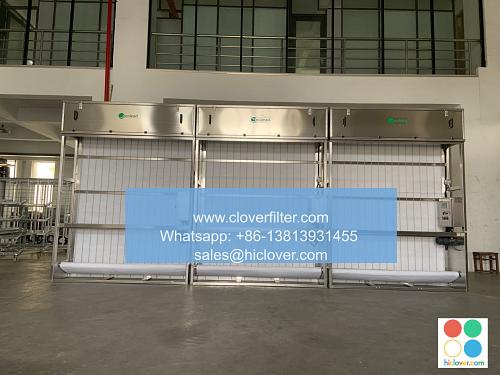Air Filters and Allergies and Asthma Relief: A Guide

Air filters have become an essential component in maintaining a healthy indoor environment, particularly for individuals suffering from allergies and asthma. In this article, we will delve into the world of air filters, exploring their benefits, types, and applications in providing relief from allergies and asthma.
Understanding Allergies and Asthma
Allergies and asthma are two closely related respiratory conditions that affect millions of people worldwide. Allergies occur when the immune system overreacts to harmless substances such as pollen, dust mites, mold, and pet dander, triggering a range of symptoms including sneezing, congestion, and itchiness. Asthma, on the other hand, is a chronic inflammatory disease characterized by recurring episodes of wheezing, coughing, and shortness of breath.
The Role of Air Filters in Allergy and Asthma Relief
Air filters play a crucial role in removing allergens and irritants from the air, providing relief from allergy and asthma symptoms. By capturing airborne particles such as pollen, dust mites, mold spores, and pet dander, air filters can significantly reduce the amount of allergens present in the air, making it easier for individuals with allergies and asthma to breathe.
Types of Air Filters
There are several types of air filters available, each with its own unique characteristics and benefits. Some of the most common types of air filters include:
* HEPA (High Efficiency Particulate Air) filters: These filters are capable of capturing 99.97% of particles as small as 0.3 microns, making them highly effective in removing allergens and irritants from the air.
* Activated Carbon filters: These filters are designed to capture gases and odors, making them ideal for removing VOCs (Volatile Organic Compounds) and other airborne pollutants.
* UV (Ultraviolet) filters: These filters use ultraviolet light to kill bacteria, viruses, and other microorganisms, providing an additional layer of protection against airborne pathogens.
Application Areas for Air Filters
Air filters can be applied in a variety of settings, including:
* Home air purification systems: These systems are designed to remove allergens and irritants from the air, providing relief from allergy and asthma symptoms.
* Commercial air purification systems: These systems are used in offices, schools, and other public buildings to improve indoor air quality and reduce the risk of allergic reactions and asthma attacks.
* Portable air purifiers: These devices are designed to be compact and portable, making them ideal for use in small spaces such as bedrooms, offices, and cars.
* Industrial air purification systems: These systems are used in industrial settings such as factories, warehouses, and construction sites to remove airborne pollutants and improve worker safety.
Key Benefits of Air Filters
The use of air filters can provide numerous benefits for individuals with allergies and asthma, including:
* Relief from allergy and asthma symptoms: By removing allergens and irritants from the air, air filters can significantly reduce the severity of allergy and asthma symptoms.
* Improved indoor air quality: Air filters can remove airborne pollutants, improving the overall quality of the air and reducing the risk of respiratory problems.
* Reduced risk of infection: By capturing airborne pathogens, air filters can reduce the risk of infection and illness, particularly in individuals with compromised immune systems.
Conclusion
In conclusion, air filters play a vital role in providing relief from allergies and asthma. By understanding the different types of air filters and their applications, individuals can make informed decisions about how to improve their indoor air quality and reduce their symptoms. Whether you’re looking to improve the air quality in your home, office, or industrial setting, air filters are an essential tool in the fight against allergies and asthma.
Recommendations
If you’re considering purchasing an air filter, here are a few recommendations to keep in mind:
* Look for a filter with a high MERV rating: The MERV (Minimum Efficiency Reporting Value) rating measures the filter’s ability to capture particles of different sizes. A higher MERV rating indicates a more effective filter.
* Consider a filter with a HEPA component: HEPA filters are highly effective in removing allergens and irritants from the air, making them a popular choice for individuals with allergies and asthma.
* Check the filter’s maintenance requirements: Some air filters require regular maintenance, such as cleaning or replacing the filter media. Be sure to choose a filter that fits your maintenance schedule and budget. You haven’t asked a question or provided any context for me to respond to. Please provide more information or ask a specific question, and I’ll do my best to assist you.

